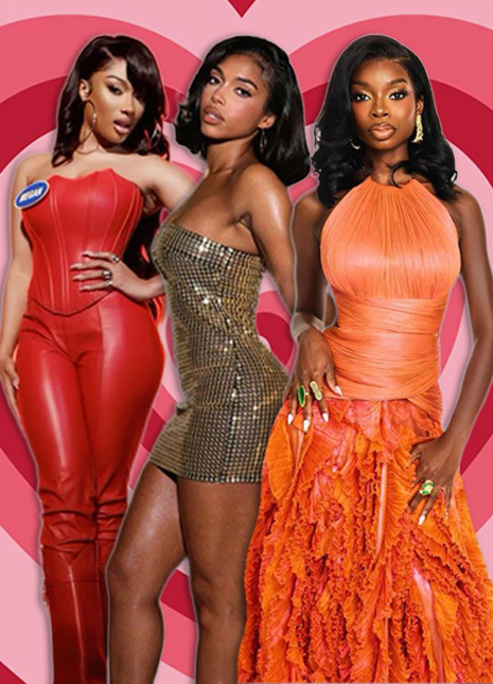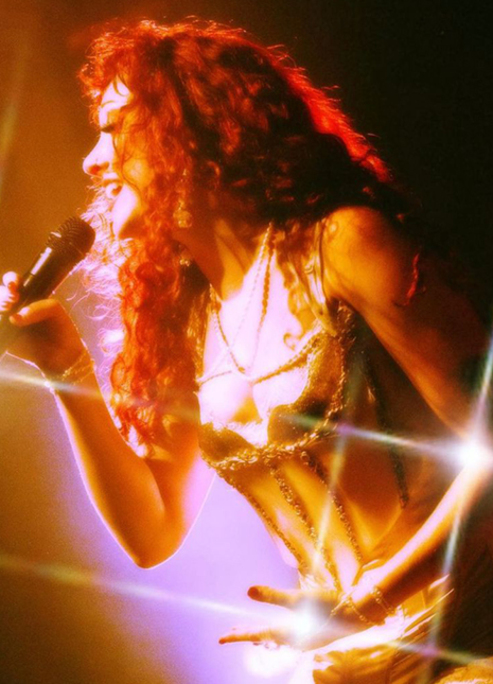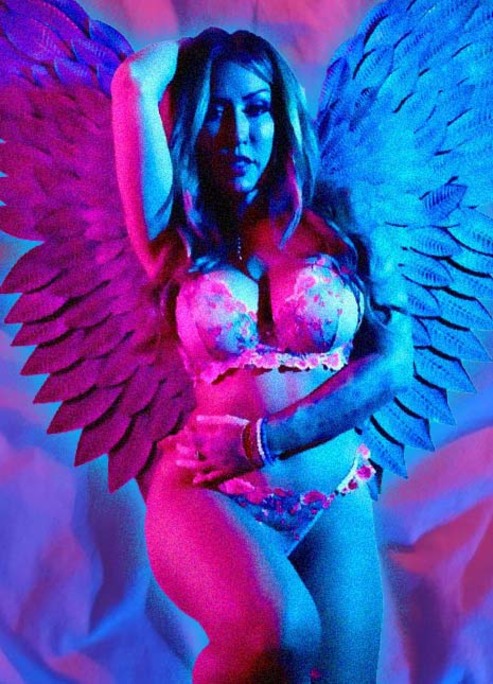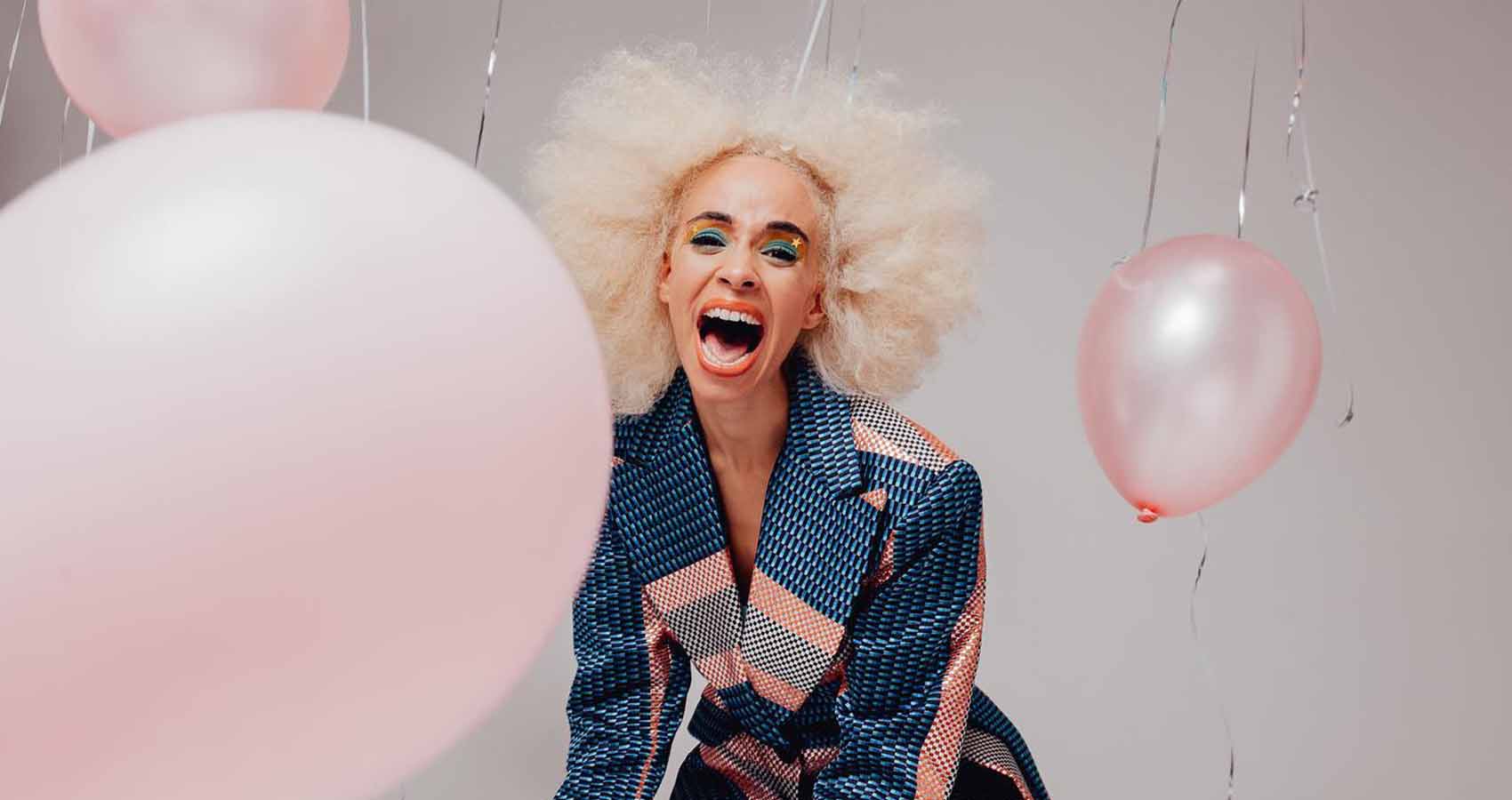
We Chat To BEKA About Mental Health, Mixed Race Upbringing And Empowering Hairstyles
"Getting over people's opinions is internally liberating."
Have you ever walked around London in a wedding dress, drinking prosecco on the street? Neither have we but thanks to BEKA now we know it’s a must! Full of talent and positive energy, usually dressed in pink, Neo-soul & R&B artist sat down with us a few days after her birthday. Today, she has a different reason to celebrate, though – her EP ‘I’ll Be There', with the titular single dedicated to her husband, has just come out. Make sure to give it a listen!
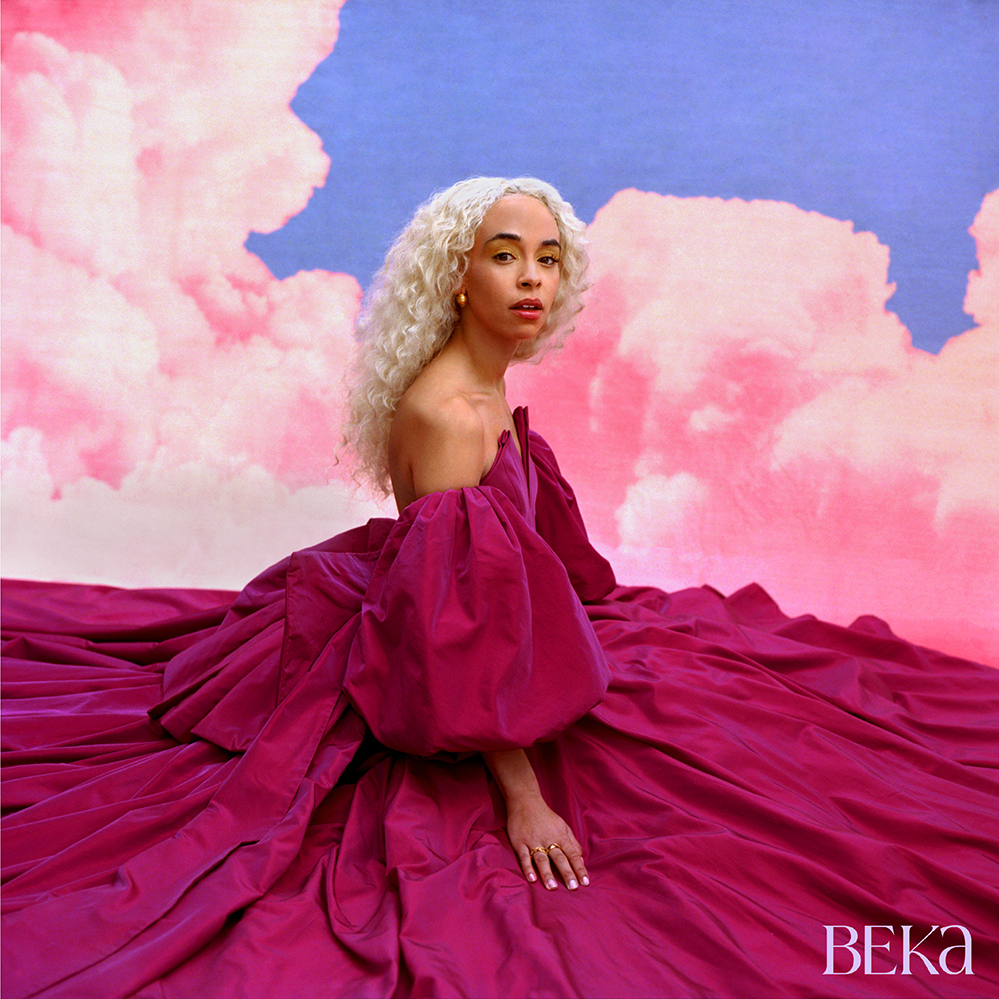
Hellooooo, I’ve just literally run here from my session and going into cozy mode!
Thank you for meeting us then, how was the session?
It was really good, thanks! I was writing with a friend, Steph Marziano, who’s an amazing producer. Did you ever watch Recess? She’s kinda like Spinelli.
That sounds like a great session – and a great producer. And happy belated birthday by the way! On this occasion, what would be the best birthday gift you can think of?
To get to see Stevie Wonder live, oh my god, that would be the ultimate gift. So if you know anyone, hit me up.
Noted! I’m asking about presents because I know that you actually gifted a song, ‘I’ll Be There’ to your husband, expressing support in his struggle with depression and anxiety. What was his reaction when he heard the single and what effect did it have on him?
The day when he heard it was the same day when it was written. I started it during a session with Hone and I was so excited because it was the first time I’ve ever written something for my own music. I sent it to him on my way home, telling him that it was about him. He messaged me back, saying ‘I’ve just cried.’ That was the greatest response because although he’s very emotionally intelligent, he’s not a crier, so that meant a turn. I think it happened really organically, I didn’t write the song, thinking specifically ‘I’ll be there for YOU, this is a gift for YOU,’ but instead, it was just coming out of me. Sometimes we listen to this song, not too much because obviously, there’s my jarring voice on it (laughs). But when we do, we might get a little tickle and all the feels, so it really reminds us of certain times of our lives.
Does he hum it sometimes when he washes the dishes or makes coffee?
100%, which I love!
Mental health is clearly an important subject for you – not only does it inspire your songs, like ‘I’ll Be There,’ but also, your online presence. You host an Instagram series, named ‘Cuppa & A Natter’ whereby you chat about mental health, love and happiness in an effort to spread positivity. How did you come to have such a strong interest in it? Did you become so vocal about it because of your husband’s struggles or were you interested in this subject before?
I’ve always been really curious about the real stuff that goes beyond presenting that we’re doing great and our life is amazing. For example, how women feel when they become mothers and lose a bit of their identity. I’ve always wanted to ask about those personal things that we all experience but don’t necessarily have permission to talk about. Mental health has been a big thing going on when I was entering a solo stage of my career. But last year was difficult for everyone, because of the lockdown and even the Black Lives Matter Movement, so I was aware that many people were internally struggling. That’s why, it’s been important for me to address what felt relevant to the music but also, just the things I’m curious about. Equally, I think we have this topic called ‘mental health’ that all of us can speak about as if we’re not in it or we know somebody who has it. We all have minds though and keeping them strong, fit and kind is a real challenge. We talk about it with our bodies but we don’t speak about it with our minds. So I wanted to make space for this really important part which is the brain, feeling everything that we do. I hope that, as the EP comes out, we can speak about some other tricky things we all go through, but they always relate back to our mind.
So what are the ‘tricky things’ that you went through yourself, in your journey as a woman, as an artist, as a singer?
So many of them! Cultural background and race have always been a really interesting theme for me. I am mixed race, and so are both of my parents, so they both have ‘half’ and ‘half’ in them. Me and my brother, JJ have all of these places within us and although we were born in the UK, we have a strong sense of pride of all places that we’re from. It’s not easy though. My dad is mixed race, his dad is Nigerian, his birth mum is white British. He was adopted into a British family, so in my cultural upbringing, the Nigerian part was never something I knew much about. That’s why I think I struggled with feelings of displacement and not seeing myself as a young woman represented in the media very much. I remember that once my teacher, seeing my hair up, said ‘You look like Donna Summer,’ and at the time, I didn’t know who Donna Summer was. I realized later that it was meant as a compliment but I didn’t have bases or spheres to find people who looked like me. So I think underrepresentation has definitely been a part of my journey. I also needed space to talk about it. Being mixed race is a thing in my family because we’re from lots of places and we have a lot of cultures that make us up, so we talk about it a lot. But it’s not always an easy conversation to have with others because it’s tense and emotionally charged.
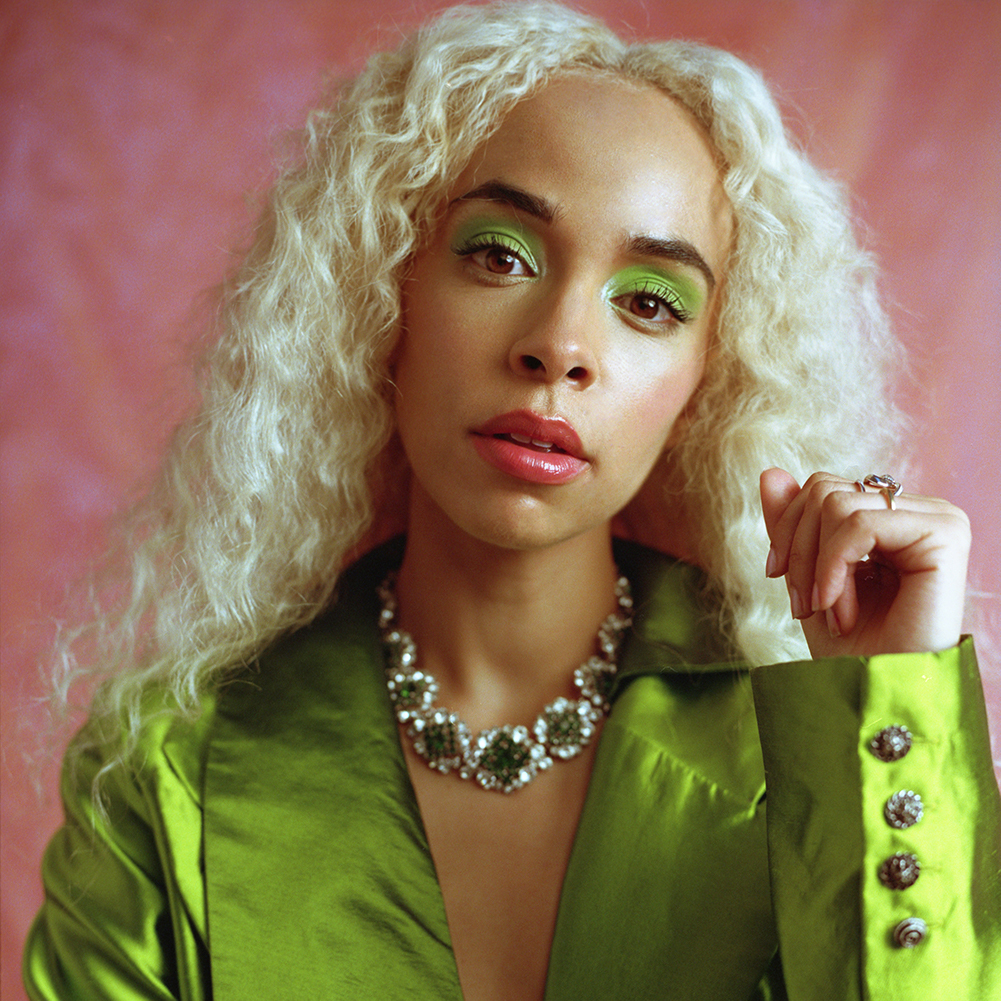
Is this why, on the occasion of Black Lives Matter, you admitted that in the past, you ‘suppressed your blackness’ around your white, British friends? Do you feel that you still suppress it sometimes? Or have those recent events helped you to advocate for your identity and acknowledge who you are?
Last year was really profound for me, recognizing that it’s ok to have attributes akin to my culture. So I think the feeling of suppressing my blackness was the skin I shed last year, I don’t feel the same way anymore. And I think for a long time I hadn’t even realized I was feeling this. My husband, my grandma’s side of the family, or my friends from school are all white British, so I was existing in these different spheres. On the other hand, though, I’m very passionate and overexcited about life, which comes from my cultural upbringing but that’s not the British way. That’s why I always felt a bit too much or a bit too loud. Even my hair was always a talking point. I drew attention to yourself, I felt like a lot and I didn’t know if it was ok. So, being able to shed that and recognize that it’s ok to celebrate these cultural differences has been really powerful. I found freedom in representing and allowing those different things of my culture to come forward a little bit more. I don’t suppress differences anymore.
How does it shape you as an artist, in your solo career, with your upcoming EP?
My hair is a big thing for my artistry. It’s a funny topic but simultaneously very important, especially for women of color. If, as a mixed-race woman, you put your hair up in cornrow braids, you’re gonna be possibly told you look a bit ‘ghetto.’ You don’t often see a combination of cornrows and a suit in Vogue. But cornrows, or braids, or buns are easy to throw in and protective for my hairstyling. So, I really felt empowered this year to try other styles that might not be perceived as high fashion or vogue, or serious, but they are those things if I want them to be.
Or, on the other hand, they don’t have to be them at all.
Exactly! Trying to undo these negative attachments and stereotypes that sit around hairstyles, hair texture, certain clothes and generally, women of color, has been so freeing but also, really difficult. Suddenly, you see all these years when you were under a bit of pressure you hadn’t even realized and that’s quite a vulnerable thing to understand. So, it definitely affected the way I present my visual self which reflects what’s going on for me internally, with more freedom. Ultimately, that’s what I want for everybody, especially women, to feel like our liberated selves and have permission to become that.
How has this acknowledgement affected your fashion style? You describe your style as inspired by glamorous old ladies. I can also tell that you love pink, and so do I actually!
I love that you love pink, it’s just a great color! Probably, as I embraced a bit more of myself, I allowed myself to stand out a bit more. Embracing the perceptions of said hair definitely liberates the rest of you. I was speaking about it on ‘Cuppa & A Natter’ with Zeena Shah, a stylist who works a lot with color. She was saying that we’re afraid to be seen, that’s why she really advocates for people to wear color, whether you start with your nails and then, you move to your clothing. I found a similar thing for myself, just letting myself wear what I like. My best friend bought me this huge white dress, which is hilarious cause it looks like a wedding gown. I wore it the other day and we walked around London, having glasses of prosecco, on the street. I actually looked like I was going to a wedding and it was a lovely coming of age moment to feel so much internal liberation and just get over other people’s opinions of me. Because it always comes back up. I was in a session today and I was presenting ideas and I felt nervous, I always do! We’re so bothered by other opinions. But I think if we can liberate in small things, in how we look and how we feel about ourselves, it makes it easier for the bigger things.
Does it help to handle the imposter syndrome that you mention sometimes? Do you feel that it might be triggered by the fact that you’re a woman of color?
Definitely. Not seeing yourself around you, doing the thing that you’re gonna do, automatically makes me question whether I can do this. And it’s not necessarily conscious, I’m just subconsciously counting myself out. So I think having those intentional conversations with myself this year, which has been slow, so I had more time to feel vulnerable, scared and outcast, has allowed me to work through these things. And doing crazy stuff, like wearing a wedding dress and drinking prosecco on the street, is almost a physical representation of what’s going on internally but it also helps me to get over myself. We can think that we’re liberated and free but actually, we’re super bothered about ourselves.
A minor issue turns up and self-esteem collapses.
Exactly. There’s been so much of this year that I spent outside of my comfort zone. In January, for example, I started writing songs on Zoom with other people. In the first few sessions, it was absolutely terrifying and I was thinking ‘I don’t know if I can write songs,’ which is stupid because I’m a songwriter. Achieving something I didn’t know I could do makes me feel like I’m gaining ground for myself. I can look back and think ‘You’ve got this.’
How about other people working with you on Zoom? Have they felt the same way throughout the songwriting process?
It’s been a real blend. There’s a lot of awkwardness on Zoom as we’re not able to take a moment that’s natural in the conversation. On the other hand, I think that people like that they can hide a little bit. There’s less pressure in a way because you can mute yourself for a second and catch your thoughts. So, it’s a bit of both. I haven’t worked with tons of women though, which is a shame.
I actually spoke to a few artists about it and they all ask where are female producers or musicians, so it’s a real problem that slowly begins to change. Nevertheless, did your team help you to overcome Zoom stress?
It definitely helped me knowing that everyone is in the same position. So many people I’ve spoken to said that they hated every second of this. I feel confident in my people skills, so I really liked connecting and helping them to feel a little less awkward. I get a lot of energy from that.
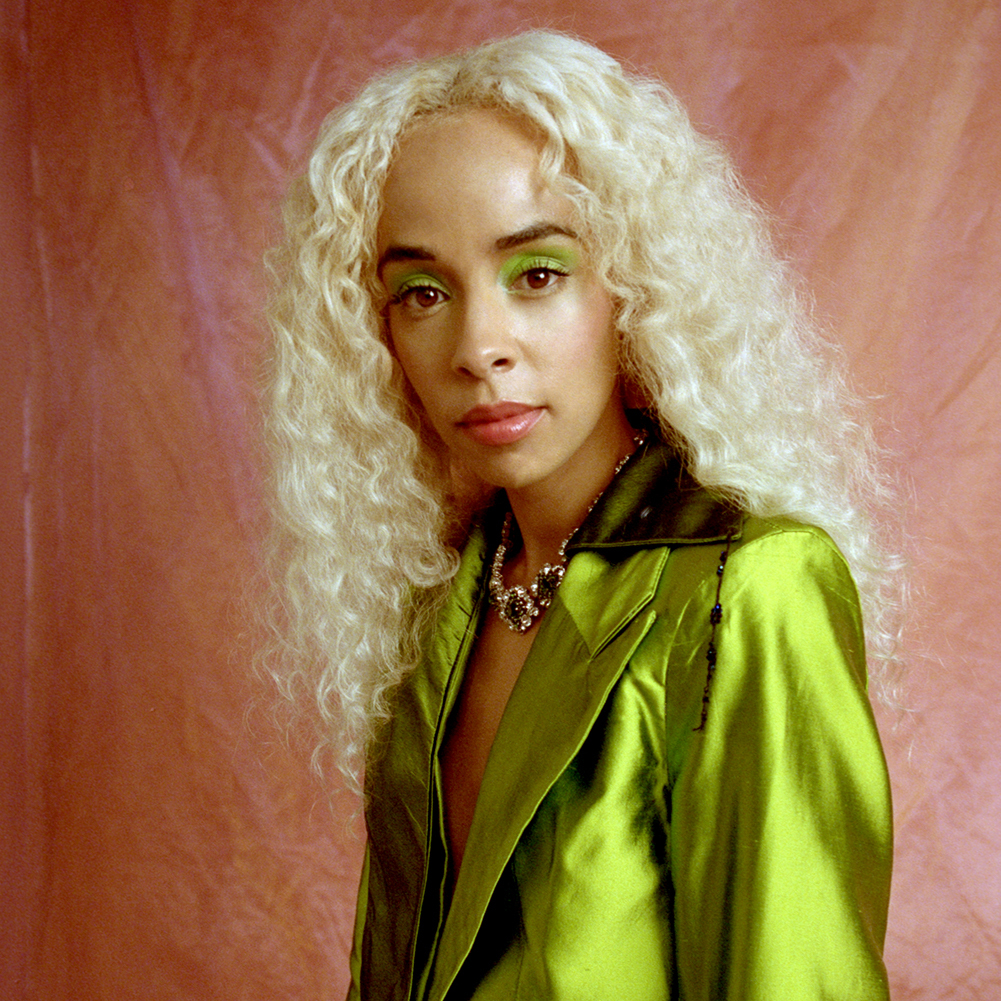
Your confidence in your people skills doesn’t come as a surprise because you’re a veteran of collaborations. Until quite recently, you actually preferred working for someone and the perspective of making your own music wasn’t exciting for you. Why were you so selfless?
I love what music does in culture. It gives words that you normally can’t say, it starts conversations we’d never have otherwise. You can listen to a song and go through grief, or death, or the worst thing in your life and that song suspends your feelings in the air, which you can revisit later when you press ‘play’ again. Therefore, it shapes the culture that we’re in. Young women wanna be like women they see in the arts, so I see it as a really powerful tool for our society. That always excited me but I wasn’t thinking about the idea of myself and my voice. I didn’t feel like I was amazing or that I had something big to say. I preferred the feeling of coming together.
When did it change?
It was a conversation with Honne [an English electronic music duo with whom BEKA performed as a backup singer] in LA one night when they just asked why I wouldn’t do music on my own. And I told them what I just said to you, that I love what music does culturally but I don’t think that I’m that great. I couldn't be bothered to start again and push my way up, it didn’t excite me. They said then that I could things I wanna do through music and collaborate with those I love and simply, believe in myself. Sounds cliché, but a big part of myself didn’t wanna admit that I would love to build my own team, work with people who I believe in, put on amazing shows and write evocative songs. I didn’t admit it because it felt too overwhelming. Honne really empowered me and allowed me to be honest with myself. I guess it was that collaboration, as you asked about, that reassured me that I’m gonna be ok, cause I’m just giving it a go, I don’t have to be Beyonce. Although…
… although why not?
Yeah, why not?
It might as well happen! You say that Honne empowered you but how did they inspire your solo project musically? You sound great together but their music is quite distinct from yours. How are those two different genres intersecting?
The thing that lays at the foundation of our collaboration is the fact that they are amazing producers and we’re also really close friends. When you’re forming anything from its initial phases, the foundation of friendship is completely priceless. Talking about your partner’s mental health, singing a note or a bassline that you wanna have can be extremely vulnerable, so I think having that basis of friendship really inspired us collaboratively. Also, we all have a love for emotive music that takes you somewhere, so as producers they were really facilitative. Before that, I spend some time with my brother JJ, who’s also a producer and we just listened to a huge amount of music that I love to work out what is it about these different songs, what’s gonna be core to the sound. So coming into writing with Hone, I had references points. And as we worked together, the sound evolved and it became more and more comfortable. But you’re right, musically, we’re very different and I think we know our sweet spots together, which is nice. If we were ever doing a song that is half me, half them, it would be nuts though (laughs).
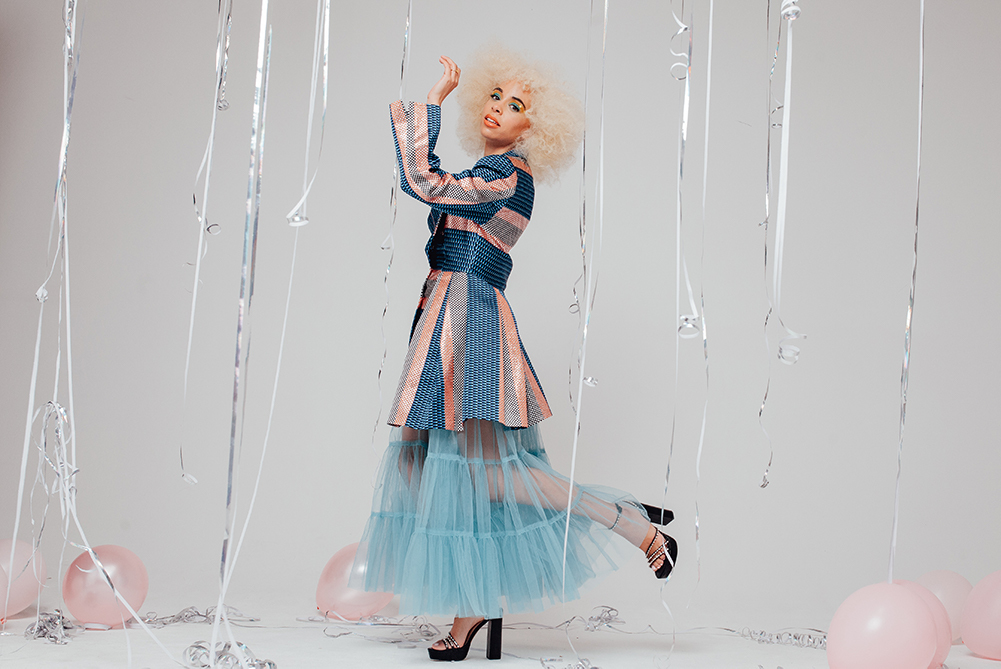
Does working with your friends like Honne or family, for example, your brother JJ, facilitate emotional expression? Do you feel less intimidated when you’re in the studio or on Zoom?
Exactly, you smashed, it’s completely that. I’m a very relational person, I love meeting people, admiring them and almost bringing them as a family. So having those close relationships means that I feel safe and that I can be a bit more myself. I can’t address how vulnerable and naked songwriting and making music is. Even as a woman, to put on a patterned maxi dress, instead of the short ones we usually wear is really vulnerable! And so is everything that we create, so having safety and knowing that you can say that you’re not sure of something, feels amazing. But then equally, with people that you do know really well, it can be difficult to change because they know you in a way they want to. I definitely find a lot of liberation from working with strangers too. I could go in and be whichever version of myself I want to be that day and bring confidence. My manager, who’s also my friend, is also really passionate about working with people who we have a spark with. So on this upcoming project, we have people who we really admire and we’re making our family grow bigger and bigger.
It’s interesting that you mention vulnerability because your music definitely feels this way. All reviews describe your songs as highly emotional, but some view it as hope-filled and cheerful, while others, conversely, as melancholic. For me, it’s actually both because your cheerful and bright voice touches upon very serious issues and explicit emotions in a delicate, almost tender way. Does singing or putting your songs out make you feel vulnerable or exposed? How do you handle that baggage?
Oh my gosh, thank you so much for finding those different things! I always want the music to be about things that are important to me. And whether it’s friendship or struggles of marriage, I always want my songs to observe things that I’ve been through. Because later on we get to chat about them and I love conversations about music! I find singing and writing very cathartic but actually, I feel a bit nervous about singing some of them live. It’s gonna be emotional for me. Recently, in a showcase, I was singing through ‘I’ll Be There’ which I hadn’t played live at all at this point and I just started wailing when I got to the bridge. It was born out of a tough time in my life, written in lockdown, on my own, in my house. I feel very lucky that I get to write songs that move me but I want them to feel like a community statement as well. There’s a song 'Green Light,' coming out in May which expresses post-lockdown energy. Writing it was cathartic but I’m more excited about what it can do to all of us together. I like that songs can take us to a private place when we’re all gathered together publicly, we can have a moment with it, almost like a statement of letting ourselves go. I’m a passionate person, so I can smell when things are. I just have to write about what’s going on for me and just hope that I won’t cry too much, you know (laughs).
And even if you cry, it manifests even more strongly that you’re authentic. Do you feel that you self-impose a bit of pressure with a desire for the communal feeling during the live shows?
It feels like less pressure and more liberation. I just wanna be free when singing my songs, not worrying about the notes or anything. I performed for a lot of my life and I worried so much about it being perfect. Now, I want people to feel that they have my songs for themselves, whatever is going on in their lives. As a performer, I just wanna connect and be in the moment. I don’t feel pressure, I’m excited. I miss the energy of live shows. There’s nothing like it. It’s so otherworldly.
Do you have anything planned for your upcoming show to visually express the style of your new EP?
Clothing – there’s gonna be lots of great outfits! I also like when shows can be a bit immersive, so I want to be among the audience and share intimate moments, all together. I can’t give you all my secrets though! See you at the live shows!
BEKA will two play headline shows this October, heading to Nottingham's Rough Trade on October 27th and London’s Colours in Hoxton on October 29th. Tickets available at gigsandtours.com & ticketmaster.co.uk



